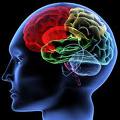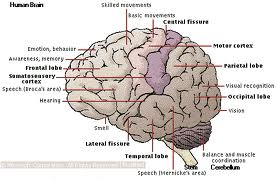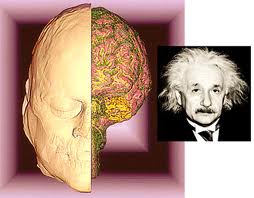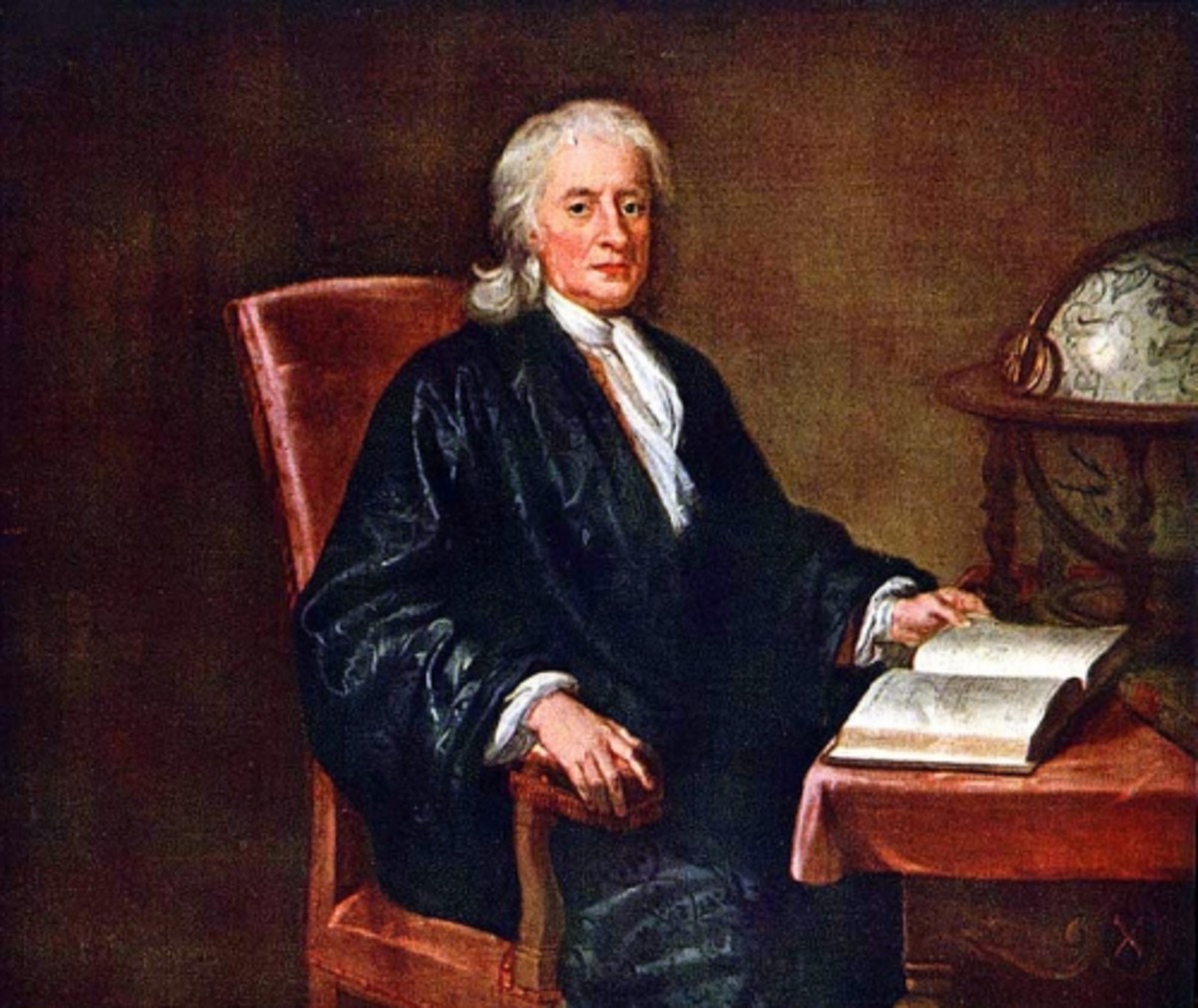Increase your IQ Now


Genius and How the Brain Works
Many misconceptions exist as to whether a genius is made or born. I may not be able to dwell more in the argument of which of the two but with no iota of doubt most of the genius produced by this contemporary age, that made impact in different fields are genius that were made. Let’s move a little bit into developmental psychology, every child born is born with brain empty of basic or any information. The baby stores information into the permanent memory, the more the baby learns and does something repeatedly, it makes use of that permanent memory throughout the life time in executing life instructions. You may ask a child to bring something, the search centre of the brain searches the permanent memory and see if such or similar instructions has been learnt or executed before and therefore gives the same response.

What is IQ?
Now that the concept of self-made genius is established, we proceed forward to define or explain what IQ means. It literarily means intelligent quotient. In my own understanding and simple word, it is a person’s ability to solve a problem with respect to time. It is one’s problem solving ability.
Mathematically, IQ = Solution to problem
Time taken
There are two key words here, solution and time. One must be able to solve the problem and then the time taken to solve it is also put into consideration. Most of the population falls within the range of an IQ below average though it’s enough for you to think a bit rationally and be successful in most profession. Few fall on the average, fewer above average and yet very few much above average. It is advisable that you calculate your IQ by attempting some IQ questions provided on some software or websites. Some of them would be given below this write-up. After knowledge of your present IQ level, then you can make plans on how to increase your IQ. Some past genius are listed below.

William James Sidis
The man with the highest IQ in history lived in the US during the first half of the 20th century. Fluent in ancient greek at the age of 3, he began by skimming through the pages of the newyork times by the time he turned 18 months, Sidis particularity resided in the fact that he was mocked and ignored during his entire life. He graduated from Harvard at the age of 16 and began his working career as a textile machine operator. He wrote his first book on anti-matter and blackhole at the age of 20. But instead of focusing on his talent, the media only took interest in the fact that he was not dating and this fueled his deep depression. He scored 230 and some believed that it was 250 in the IQ test. This places him above all others. His enrollment at Harvard at age 11 defined him as one of the most intelligent men that ever lived.
Second Johann Wolfgang Von G
Born in 1749, this German writer was a considerable influence throughout Germany and Europe. The author of “the sorrows of young werther” and “Faust” was in fact gifting with intelligence his I.Q level of 210 was determine post-mortem through theoretical methods of analysis. The body of work left by this great author are considered as some of the most important of the literary world. Like most genius, he was a child prodigy. He could read at the age of 3 and spoke Latin, Greek and French before 8years. He manifested his propensity to write at the age of 14 with the completion of “ the lover’s caprice” he also studied magic, astrology and alchemy.
Blaise Pascal
Is a genius whose research continues to this day to the point that they are pillars of many of today’s modern sciences. Mathematicians, physician, theologist, critic and philosopher. Blaise Pascal whose IQ was 195 is one of the most important genius in history. He lived up to his reputation very young in life ate age 12, he proved Euclid’s 32 element (the sum of angles of a triangle equals to 2 right angles). At age 16 he invented projective geometry, which is still in use to this day in mechanics and engineering. He had his first work; essay in ionic section published at age 17. Two years later, he perfected the first digital calculator. The fore runner of information technology as we all know today. As an avid amateur in physics at 23, he debunked dercantes theory on the “vacuum”
Sir Isaac Newton
It would be wrong to summarize Newton’s genius accomplishment as the story of the apple “theory of gravity” with a n IQ of 190 this mathematician was born to an illiterate couple in 1642 at age 23. He worked out fluxional calculus and used fluxions to find the tangent and radius of curvature at any point on the curve. He also devised instrument for grinding lenses to particular configuration and decomposed solar lights into different colours. Newton has been regarded for almost 300years as the founding archetype of modern physical science.
Galileo Galili
An Italian Savant born in 1564 with an IQ of 185 was sentenced to life by the inquisition. He studied gravitational pull a long time before Newton did by observing the tides and their relation to Jupiter’s satellites. He determine that earth was not the center of universe and defended the theory of heliocentrism (that planet revolves round the sun) a discovery that caused much upheaval for humanity. He also invented astronomical lenses and thermometers. He was best known as the founder of modern physics establishment of laws through experiments.
Leonardo Da Vinci
Was a prodigy and a multi-subject scientist. As a unique scientist boasting an estimated IQ of 180. He dabbles into many varied fields of engineering, military, architecture, urbanism, biology, physics and of course arts. He was a visionary and prolific inventor from pivoting bridge, the parachute directional wing, driving suit, sling, armored vehicle, pulley, flood gate. He also contributed to painting. His artistic genius remained immortalized in the enigmatic smile of Mona Lisa.
Rene Descarte
His IQ was 180, designed his entire theory of thought around the quote he is world famous for “ I think I am, therefore I am”. Disappointed by an education he doubted, he wrote “ discourse on method” in 1637 in which he attempted to prove that truth and knowledge can be found through the use of pure reason and logic for four centuries, Descartes’ conceptions of philosophy and science have deeply influenced western culture and thinking.
Stephen William Hawkir
Whose IQ was 180 is no doubts the world’s greatest savant. He brought considerable contributions to the research on black holes, anti-matter and the origins of the universe. At age 16, he and some friends assembled a primitive version of a computer which actually worked. He obtained his doctorate at 21. The age at which he unfortunately showed his first signs of Charcot’s disease. Towards the close of his life around 61years he made a cameo appearance on “ star trek new generation” and was seen playing poker with Newton and Einstein.
Emmanuel Kant
Great philosopher of the 18th century with an IQ of 175. Along with Plato and Descartes, he is considered one of the three pillars of western philosophy. Founder of critical philosophy, he was at the origin of a veritable “ Copernican revolution” in metaphysics. He was undoubtedly the precursor of Einstein by putting questions of time and space such as relativity (in opposition to absolute time). In his famous “criticism of pure reason” prove that one can be a genius and still remain simple. He died pronouncing these still famous words. “ it’s ok”

Albert Einstein
Undoubtedly, emblematic of genius, Einstein whose IQ was 165 is particularly known for his theory of relativity ( which had been revealed to him in a dram) and his research in quantum physics. In his youth he showed an intense curiosity and demonstrated a remarkable aptitude to understand the most difficult mathematical concepts. At age 12, like Pascal; learned only the fundamentals of Euchdean geometry. Although having deliberately left school before graduation and failed entrance exam at L’ecole polytechnic. Einstein is a genius of science, his theory of relativity and its famous E=MC2 won the Nobel prize in physics (1921).
Simple Steps to Increasing your IQ
Having a fore knowledge of the plight, challenges and under achievements of past genius, it would be best at this juncture to state below my simple but tested and proved steps of increasing or boasting your IQ. This has been a product of several years of study and research.
1. Watch and observe things meticulously with rapt attention.
2. Open your mind for new ideas.
3. Don’t be stereotyped in reading, encourage multi-facet reading.
4. Make sure you breath in and out well, i.e. deep breath before starting any mental work.
5. Try writing with your opposite hand; since the right part of your brain is for creative thinking, art, music etc and it controls the left side of your body. So using the other side stimulates the other side of your brain and combines the part of your brain, i.e logic and creative thinking since the right part of the brain is for logic, mathematics etc and controls the right side of the body.
6. Don’t give up (thinking this things does not work).
7. Write whenever possible.
8. Work on cryptology (figuring out coded message or materials)
· Practice cross road and Sudoku (they stimulate the thought process)
· Play video games like tetris, scramble, puzzle. These stimulates the brain although other games do the reverse.
· Do logic or lateral thinking puzzles
9. Reduce the time you spend with your TV and do regular exercise to maintain blood flow to your brain. TV programs adds no value to your brain but rather causes a huge lot of unnecessary information to be stored in your brain which might get to the most important part (the permanent memory and push back the important ones).
10. Eat foods rich in proteins especially fish and take a weekly IQ test and record your result.
The author has tried this methods on subjects and after one week their IQ increased by a factor of 14. Try it and leave your own comment. Contact the author at uniknurse@gmail.com








